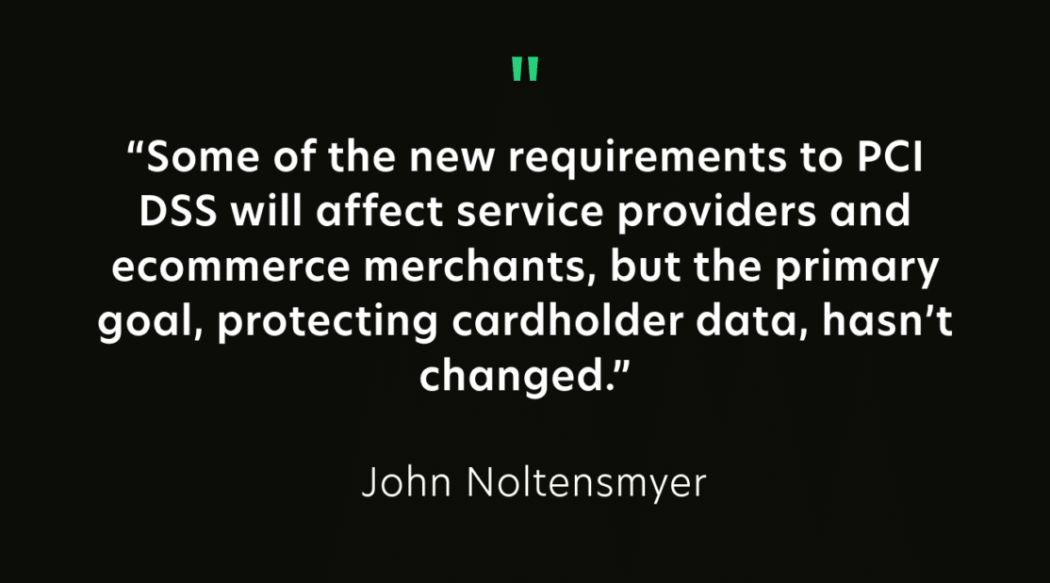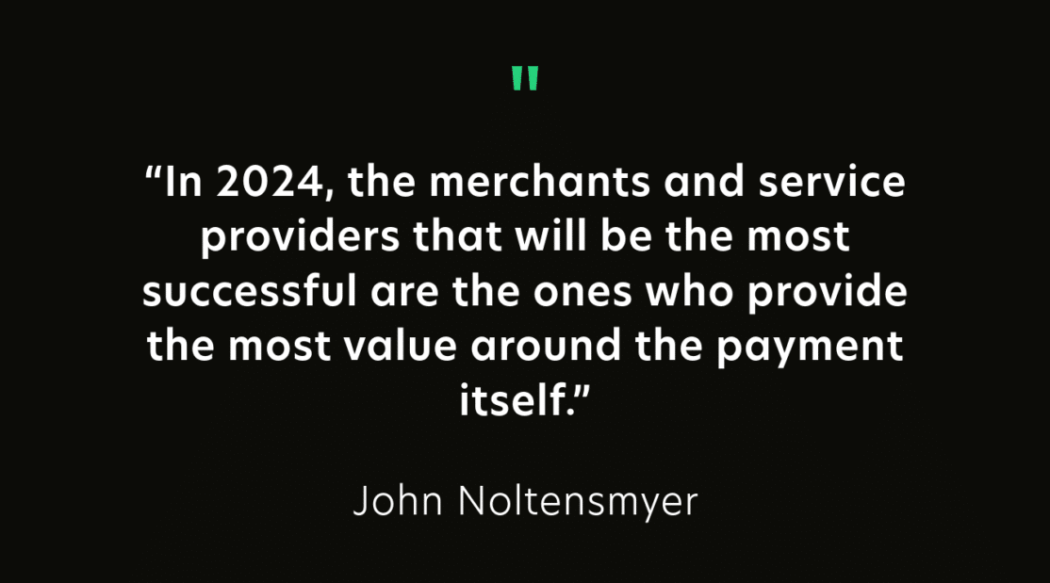In 2023, the payment industry underwent notable transformations, marked by technological advancements, evolving consumer preferences, and a dynamic regulatory environment. As the payments space will continue to evolve rapidly, the payment experts here at IXOPAY have compiled five predictions about the changes we’ll see in 2024.
1. PCI DSS 4.0 will drive merchants away from managing cardholder data internally
The impending implementation of PCI DSS 4.0 brings forth multiple changes that payment professionals must be aware of. As a cornerstone of payment security, the new version of PCI DSS introduces several changes, including updated requirements and enhanced guidelines to address emerging threats. Merchants and payment professionals should closely monitor these changes to ensure compliance and mitigate the risks of handling sensitive cardholder data.
This update may encourage merchants to offload PCI requirements onto third-party tokenization platforms, relieving some of the burdens associated with compliance. Understanding and strategically adapting these changes will be crucial for businesses aiming to streamline payment processes while ensuring data security.
2. Value driven payments will become a competitive advantage
In 2024, the winners in the payment industry will not only facilitate transactions but also provide added value to merchants and service providers. Beyond the payment itself, businesses will focus on features such as loyalty programs, enhancing the overall customer experience. When the payment process incentivizes customers with convenient checkouts, spending insights, and perks and rewards, payments will not only collect revenue, but drive it.
Finance companies are expected to play a crucial role in making it easier for their clients to offer enhanced services, especially in securing and enriching payment data. The strategic approach involves going beyond the transactional aspect and leveraging payments to build lasting customer relationships.
3. Digital wallets will increase customer expectations for convenient and secure payments
Digital wallets introduce a paradigm shift away from traditional payment methods, one that businesses will carefully follow if they wish to keep up with consumer demands in 2024. As this secure and convenient digital solution gains widespread adoption, it will not only streamline transactions but also redefine user expectations.
Businesses should not only seek to support digital wallet functionality, but also consider the redefined consumer expectation for seamless and secure payment experiences. Digital wallets will prompt a fundamental transformation in the way individuals interact with money and financial services, and understanding and embracing these developments will be essential for businesses seeking to stay ahead.
4. Consumer insights from payment data will be used to fuel growth
Tracking essential payment data is key to making informed business decisions. In an era of multiple payment channels, having “one source of truth” for payment data is becoming increasingly important. Ownership of payment data is the first step toward unlocking its power and leveraging it strategically to gain insights into consumer behavior and market trends.
By harnessing these consumer insights, businesses can tailor marketing campaigns and promotional efforts to resonate more effectively with their target audience. This personalized approach will enhance customer engagement and bolster brand loyalty, contributing to sustainable and organic growth for the business in a competitive marketplace.
Interested in learning more about unlocking the full potential of your payment data? Read more in our comprehensive payment strategy blog here.
5. Payment security will evolve for all payment channels
The evolving landscape of payment transactions brings with it a set of emerging security issues that payment security professionals are actively addressing to fortify the integrity of financial transactions. One notable concern is the increasing sophistication of cyber threats, including ransomware attacks and data breaches that compromise sensitive payment information.
As cybersecurity professionals diligently work to fortify all payment channels, P2PE ensures that sensitive cardholder data is encrypted from the point of capture, minimizing the risk of unauthorized access and enhancing the overall security posture of card-present transactions. Additionally, security professionals are responding by implementing advanced encryption techniques, multifactor authentication, and tokenization to safeguard payment data throughout the entire transaction process.
As the payment ecosystem continues to evolve, the collaboration between payment security professionals, industry stakeholders, and regulatory bodies is crucial to staying ahead of emerging threats and ensuring a secure and resilient financial infrastructure. Businesses must prioritize security as an integral part of their strategic approach to payments to build trust with consumers and safeguard sensitive information.
The key takeaways for payment professionals in 2024 are: investigate the details of PCI DSS 4.0 changes, focus on value driven payments, adjust to customer expectations based on digital wallet functionality, optimize payment data to provide consumer insights, and focus on securing all payment channels from evolving threats. Implementing these strategic actions will empower payment experts to not only steer their businesses toward success but also to position themselves as trailblazers as they embracing the transformative landscape of payments introduced by industry innovators.


